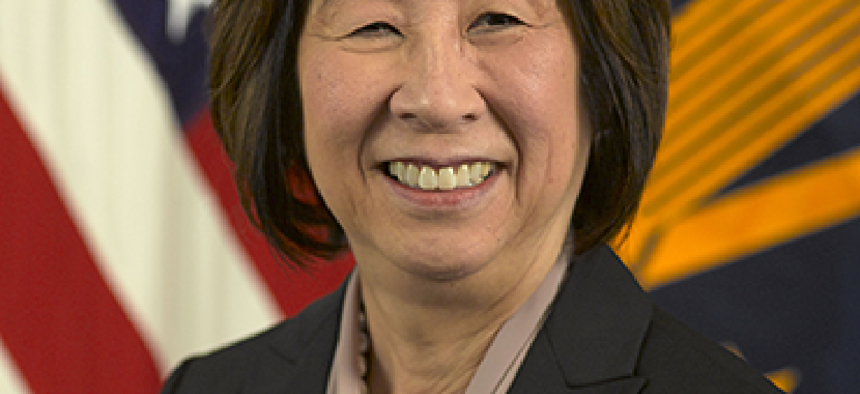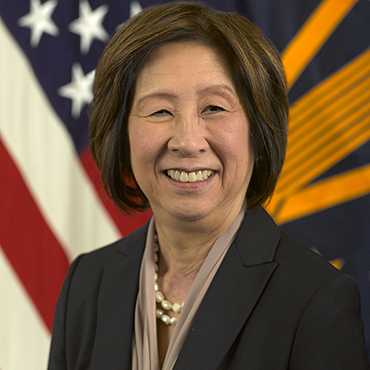Takai taking it slow on next move

Former DOD CIO suggests another government job is unlikely.

Teri Takai, whose last day as Defense Department CIO was May 2, told FCW another public sector job might not make sense.
After briefly contemplating the New York City CIO job, former Pentagon CIO Teri Takai could be on her way to the private sector, she hinted in a recent interview with FCW.
"Part of the challenge is that I've done CIO at a state level and at a national level…so I'm not sure from my own personal experience standpoint that it would make sense" to stay in government, she said. Takai served as CIO of California and Michigan before coming to the Pentagon, but described a potential private-sector job as a homecoming, given her 30-year tenure at Ford Motor Co.
She had "preliminary discussions" with New York City officials about the city's CIO job, but nothing further, she said. Takai is now quietly mulling her next move, and seems in no hurry to make up her mind.
As the top IT official at the Pentagon from October 2010 to May 2014, Takai said keeping pace with technological change in Silicon Valley was a constant challenge. "I'm not sure that I did it very well," she said bluntly, but targeted trips to California's tech hubs helped her play tech catch-up as CIO.
"I was very impressed that there's continued work in how companies can actually leverage cloud technology," she said. Particularly important is how companies can move to the cloud without being captive to a single cloud provider, she added.
She found that tech companies, much like the Pentagon, were struggling with mobility and the cloud, "and some of the problems that we were seeing weren't unique at all," Takai said.
Looking back
Takai, whom Navy CIO Terry Halvorsen has replaced on an interim basis, said one of her top accomplishments was more clearly defining the DOD CIO position within such a vast organization. The position was being reorganized as she took the job to increase the emphasis on cybersecurity, she noted. Her office worked with U.S. Cyber Command to put "very important structural pieces in place that will continue to build the cyber workforce," Takai said, referring to a 2013 strategy focusing on recruiting, training and retaining cyber personnel.
When asked to assess her work with the individual services' CIOs, Takai said having multiple CIOs within an organization led to "creative tension," not executive turf battles or bureaucratic redundancies.
"DOD is a big place and there is a lot of technology," she said. "Each of the organizations has to ensure that they're looking out for the best interests of their organization."
The Defense Department's size also means cost-cutting measures that might be significant in another agency barely make a dent at DOD. "The challenge is how do you actually save money because we're very large, very disaggregated," Takai said. "[It is] very difficult sometimes to get your hands on the spending."
Short-term budget tweaks are more palatable to Pentagon officials than changes that might yield long-term savings, she added. "It's very difficult at DOD to implement savings that are going to give big savings quickly."
NEXT STORY: Avoiding the Senior Executive Service


